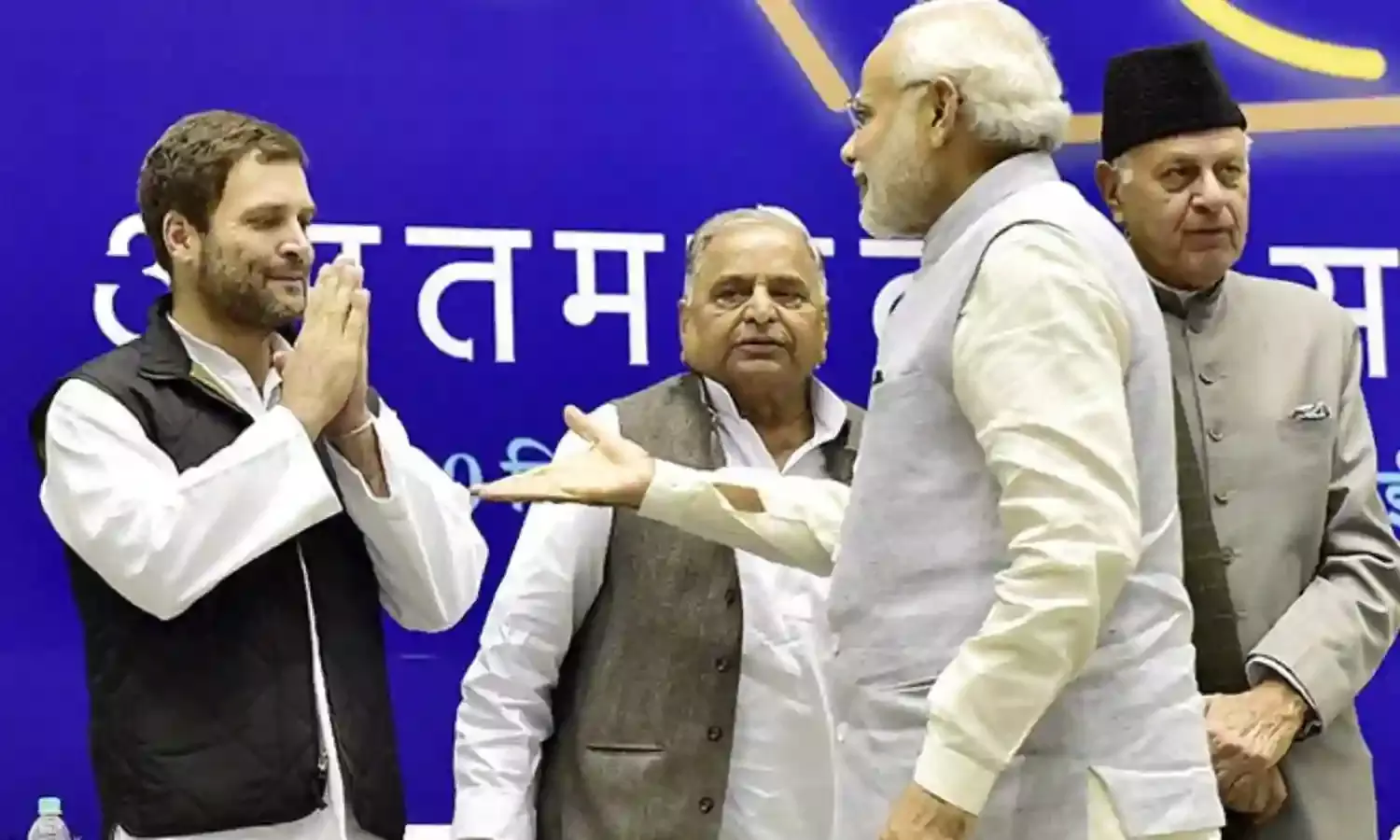Prince Checkmates King
BJP hardliners see the verdict as a wakeup call for PM Modi and Shah

NEW DELHI: The BJP might be forming the government in Gujarat with a vastly reduced tally, and certainly not even close to party president Amit Shah’s projection of 150 seats, but the Congress party has won a hard fought battle. It was fighting for a foothold in the BJP bastion, with an organisation---or what passed for it---that was totally compromised, and in a state where communal polarisation had effectively left the Congress without a face or a base.
In 2012 the BJP had secured double the seats won by the Congress party in Gujarat. In 2017 the difference has been reduced dramatically with the BJP even dropping at times to double digit figures during the counting.In the general elections in 2014 the BJP had won all the 26 Lok Sabha seats, decimating the Congress party at the time. In 2017, the party has secured 99 seats, significantly less than the 115 (later 120) tally of the last assembly.
To appreciate the Congress performance in Gujarat it is perhaps necessary to recognise at least four facts about the party in Gujarat. One, it was a fractious organisation with no reach on the ground. There was not a single party leader, old or new, in the state who had been able to establish a connect with the people. Two, many in the party were in cahoots with the BJP, in terms of political cooperation. Three, Gujarat was a highly polarised state with the Congress party unable to evolve a strategy to counter PM Modi since 2002. Four, the (deliberately) poor choice of candidates for the state polls always suited the BJP more than the Congress party.
There was little on the ground to suggest a change, except for three individual leaders Hardik Patel, Jignesh Mevani and Alpesh Thakor who had started working and campaigning for the rights of Patidars, Dalits and backwards respectively. The Congress party in Gujarat was keeping a distance from the three, titling more towards the BJP in power than the three ‘activists’ leading the specific struggles.
It all changed a few months ago when Congress president Rahul Gandhi decided to dive into Gujarat---despite the failure in Uttar Pradesh---and give the elections a serious shot. He sent in teams of younger Congress leaders close to him for a quick survey, that then extended to setting up an organisation from the grassroots. Zonal heads were appointed, zonal committees set up, feedback from local workers and supporters obtained, booth and other lower level committees formed over weeks. These committees then provided effective feedback about the candidates to be fielded by the party, with care being taken to weed out the vested interests who had been piggybacking on the Congress for over two decades.
This was matched with an aggressive appearance on the social media, with Congress youngsters using humour---videos, memes, jokes, the vikas campaign---to counter the BJP in cyber space. Rahul Gandhi led a Twitter campaign, with witty tweets in response to the more acerbic BJP posts.
He also established direct contact with the three leaders, and roped them in with promises and action into the Congress campaign. They were given full support, despite efforts by the local Congress leaders to stymie the relationship from the onset. However, the party President ensured that this did not happen with the result that he has kept all three on board at the end of a hard campaign, two as MLAs and one--Hardik Patel---making it clear at a quick press conference today that he would continue the struggle.
While this strategy did not plug all the loopholes in the almost sinking Congress ship in Gujarat, it did give it a much needed morale booster and brought it out of the doldrums into a neck-to neck battle with the BJP where the difference is at the most 20 seats between the two. This is in the BJP bastion, the homeland of both Prime Minister Narendra Modi and party president Amit Shah, where the former is invincible.
There is no state in India except Gujarat that can be described as belonging to any one party. The support for PM Modi is overwhelming, and yet at the beginning of the campaign it became clear that he could no longer speak of development, with demonetisation and GST turning public opinion against the BJP in the state. Rahul Gandhi spoke of development by attacking the BJP for reneging on its promises, and PM Modi turned increasingly to asking for the vote on the basis of being Gujarat’s “son” and of course communalism. The last increased in stridency as polling day approached. He also launched a full front attack on the Nehru-Gandhi dynasty, his barbs virtually ignored by the Congress president.
Rahul Gandhi broke the ice with the voters by first, going to temples and taking away this card from the BJP. And two, by reaching out directly to the people through strategised three day visits to different regions, where he remained accessible, and became increasingly popular in a state that has shunned the Congress party. In the process the Congress emerged as a viable alternative to the BJP, giving it a straight fight under the visible and vocal leadership of Rhul Gandhi.
The mandate thus, is important and seen by politicians as a major challenge to the BJP. While Shah and PM Modi are spinning the victory with the slogan “jeeta vikas, jeeta Gujarat”, party hardliners are not convinced. Subramanian Swamy has fired the first salvo by saying that it is a wake up call for the BJP, and that it was time to involve the political leaders in the states instead of leaving the elections to “technicians.” Opposition leaders like CPI’s D.Raja and NCP’s Majid Memon are on record analysing the results as a major “challenge” to the BJP and the beginning of a possible change.



